MS-LS2-2
Construct an explanation that predicts patterns of interactions among organisms across multiple ecosystems.
-
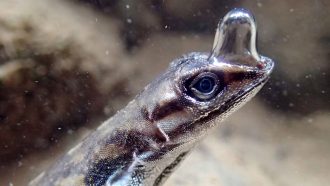 Animals
AnimalsA bubble of air lets some lizards breathe underwater
Anolis lizards leap into streams to escape danger. Now researchers have figured out how they can stay underwater for up to a quarter of an hour.
-
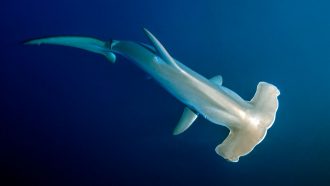 Fossils
FossilsSudden shark die-off 19 million years ago eliminated most species
New fossil evidence shows 90 percent of sharks died in the mysterious event.
-
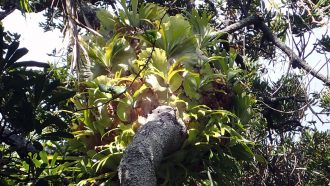 Plants
PlantsThese ferns may be first plants known to work together as ants do
Staghorn ferns grow in massive colonies where individual plants contribute different jobs. This may make them “eusocial,” like ants or termites.
By Jake Buehler -
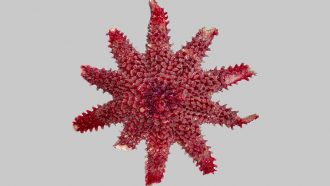 Animals
AnimalsUrchin mobs can literally dis-arm a predator
Urchins are important herbivores — but not strict vegetarians. When hungry enough, they may even rip apart their predators for lunch.
By Jake Buehler -
 Health & Medicine
Health & MedicineWill we all need COVID-19 booster shots?
Experts say not yet, but booster vaccines may be coming as new SARS-CoV-2 virus variants keep emerging.
-
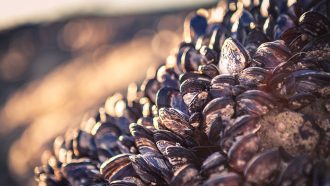 Animals
AnimalsCommon parasite may help mussels survive heat waves
By whitening shells, the organism helps the shellfish stay cool on sunny days, a new study suggests.
By Sid Perkins -
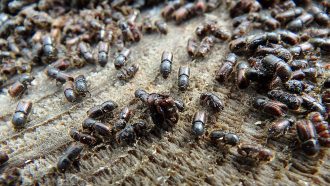 Animals
AnimalsMost species of beetles pee differently than other insects
Scientists uncover their unique system for balancing ions and water. The findings may hint at why beetles are the most diverse animals on Earth.
By Jack J. Lee -
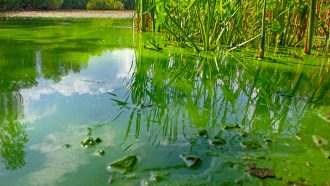 Environment
EnvironmentPond scum can release a paralyzing pollutant into the air
New study finds blooms of blue-green algae can seed the air with a poisonous pollutant.
-
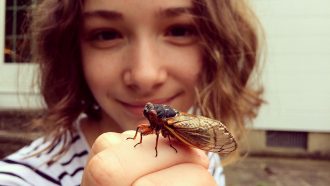 Animals
AnimalsExplainer: What are cicadas?
There are more than 3,000 species of cicadas, but the best known in North America are periodical cicadas, which emerge every 13 or 17 years.
By Sid Perkins -
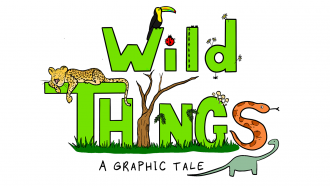 Animals
AnimalsHow bees play telephone to form a swarm
Honeybees use pheromones and flapping wings to tell each other where to find the queen — so they can all be together. Learn more with this web comic.
By Sarah Zielinski and JoAnna Wendel -
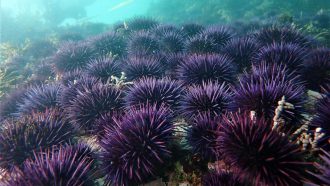 Ecosystems
EcosystemsUrchin takeover underlies California’s vanishing kelp forests
Some 95 percent of kelp forests along its northern coast are gone. Meanwhile, sea otters are helping slow the loss of surviving kelp farther south.
-
 Life
LifeLet’s learn about dogs
From learning the names of their toys to sniffing out viruses in human sweat, dogs are far more than household pets.